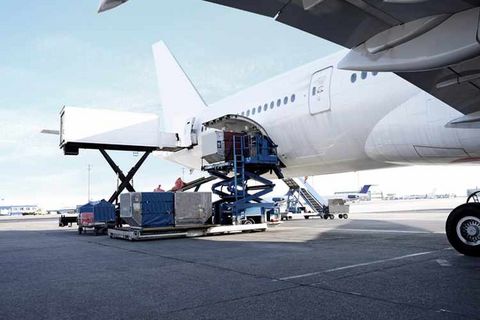'Mission of the century': 8,000 jets needed to deliver COVID-19 vaccines - IATA

The aviation industry will face “severe" capacity constraints once the vaccines currently under development are ready for global distribution, the International Air Transport Association (IATA) has warned.
Glyn Hughes, the head of air cargo at IATA, said that distributing a single dose of vaccine to every corner on the planet alone would require at least 8,000 747 cargo aircraft, making it the “largest single transport challenge ever.”
“The potential size of the delivery is enormous. Just providing a single dose to 7.8 billion people would fill 8,000 [aircraft]. Land transport will help, especially in developed economies with local manufacturing capacity. But vaccines cannot be delivered globally without the significant use air cargo,” Hughes said.
Act now
The air transport body is urging governments to start planning with stakeholders for the vaccine distribution now, to avoid potential bottlenecks, logistical shortcomings and other related issues.
There are dozens of candidate vaccines currently being developed by firms and research groups across the world, and every developer is racing to release one product in record time to ease the global pandemic.
As of the latest count, approximately 250 different programmes are under development, with about nine or ten at more advanced stages.
“Safely delivering COVID-19 vaccines will be the mission of the century for the global air cargo industry. But it won’t happen without careful advance planning. And the time for that is now. We urge governments to take the lead in facilitating cooperation across the logistics chain so that the facilities, security arrangements and border processes are ready for the mammoth and complex task ahead,” said Alexandre de Juniac, the IATA’s director general and CEO.
Controlled temperatures
Hughes said the figure of 8,000 cargo aircraft for vaccine distribution holds true only when there’s just one dose that needs to be distributed globally.
“If there are multiple doses, perhaps two or three, then you can see that there will be a considerable burden on the aviation sector to help play the role in transporting these critical commodities around the planet,” Hughes told reporters in a briefing on Wednesday.
Hughes pointed out that there are facilities that need to be put in place, as vaccines are one of the most sensitive cargoes that can be transported at controlled temperatures without delay.
“If they are conventional vaccines, then they need to be transported in a temperature range of between two and eight degrees Celsius, which is already quite a sizeable challenge if you consider the various temperature changes [through the journey of the cargo],” Hughes added.
“If there’s a vaccine that requires as low as minus 80 degrees Celsius, that means transporting the cargo in a frozen state,” he added.


